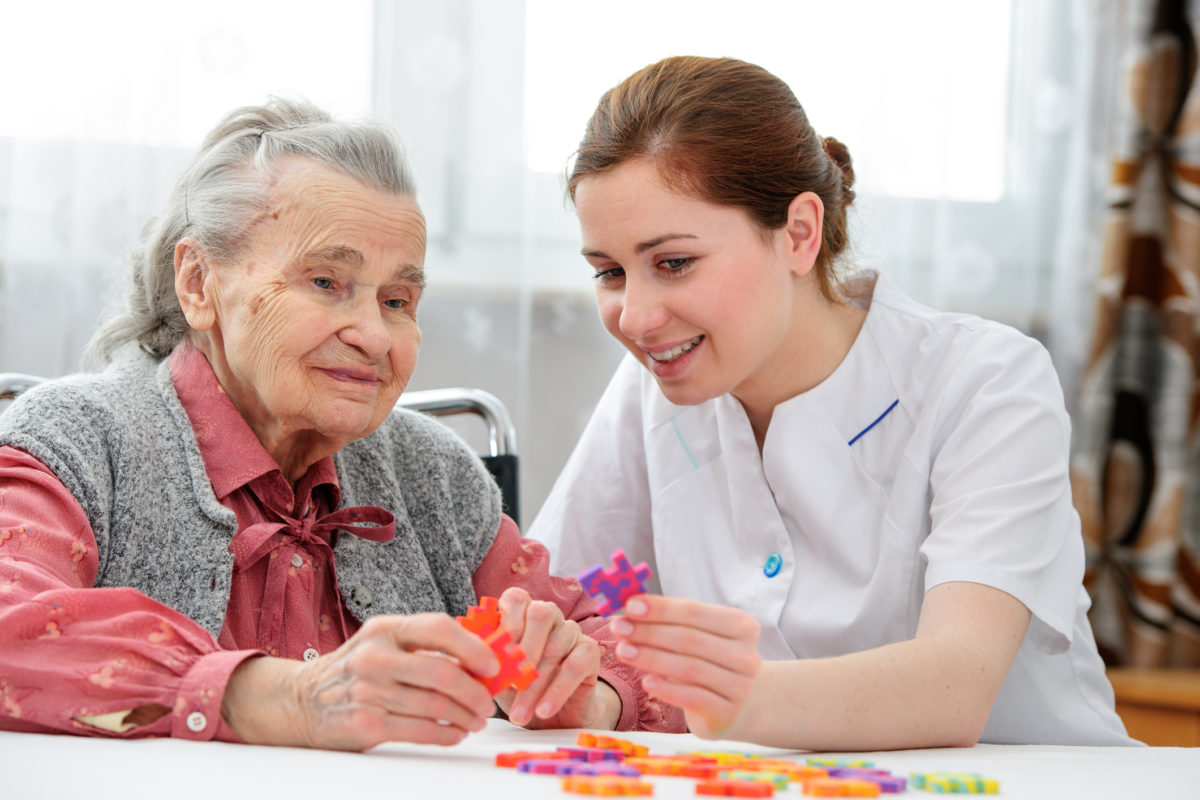Support is available for dementia caregivers
By Jeremy Rodriguez
Taking care of a person with dementia is often a new experience for caregivers. Alison Lynn, director of social work at Penn Memory Center (PMC) — a National Institute on Aging designated Alzheimer’s Disease Center, compared her experience of being a first-time mother to caregiving for people with dementia.
“I just had a baby,” Lynn said. “I’ve never taken care of an infant before. But guess what? There are a million classes, Instagram accounts, blogs, videos and all kinds of stuff out there on the internet that I can go on to read and get training in various techniques on how to raise this child. There’s not that type of infrastructure and guidance for caregivers (for dementia patients).” Lynn said the reasons for this are complicated but noted a main cause is living in an ageist society that doesn’t prioritize older adults.
“The other thing is it’s not a super lucrative area, and it takes a lot of time, a lot of specialized training, a lot of attention and a lot of one-on-one coaching,” she said. “It’s hard to get health system buy-in. It’s hard to get buy-in from our current medical insurance system.”
However, there are some resources out there for caregivers to get support from professionals and each other. PMC offers the Caring Collective, a peer mentorship program designed to support new caregivers. (267-624-4282 | PennMemoryCenter.org/caring-collective) Through this initiative, seasoned and former caregivers provide support for new caregivers. This free program was developed in response to requests from current and former PMC caregivers to connect with someone who has “been there.”
“When the person (a caregiver is) caring for dies, they’re not really ready to let go, or they want to make some meaning out of their experience,” Lynn said. “People often think an experience like this is traumatic, and people can develop post-traumatic stress conditions. But they can also experience great post-traumatic growth.”
Growth can come in the form of pride in surpassing their own limits, and ultimately in acknowledging the difficulty and beauty in caring for a parent or older loved one.
“I think (caregivers) often want to give back to other people who are going through this experience,” Lynn said. “And that’s why we did this mentorship program, so people who have done this can pass (their knowledge and experience) forward.”
This community building can be essential for caregivers, which is something that ARTZ Philadelphia also provides through its programs. (610-721-1606 | ArtzPhilly.org) The nonprofit aims to enhance the quality of life for people living with dementia and their care partners through interactions with arts and culture, including museum trips and musical performances. According to ARTZ Philadelphia Founder and Executive Director Susan Shifrin, the only thing caregivers need to do is relax during these outings.
“That’s not as easy as it sounds, and we often have to coach care partners in letting go a little bit,” said Shifrin, “They’re so used to being on high alert, that the person they’re with is going to behave in a way or say something that is going to raise eyebrows. We just reassure them there are going to be no raised eyebrows in this group.”
She added that care partners will also see their loved ones “come to life” once again, noting that people in later stages of dementia usually withdraw and can no longer hold conversations.
“When they come into a setting in which they feel valued, heard and seen, and where people are laughing, joking and being kind to one another, they rise out of themselves,” Shifrin said. “I have had so many care partners say to me, ‘I just saw my wife again. I just heard my wife have a conversation again. I can’t believe this is happening.’”
Overall, Shifrin said that every day, caregivers should ask themselves, “What is going to make me smile today?” This can include a range of activities from listening to music to having a phone conversation with a friend. She offers up this metaphor for caregivers: “If your cup is empty, you have nothing to pour into somebody else’s cup.”
“If you give up on yourself, you’re essentially giving up on the person you’re caring for,” Shifrin said. “And, for most of us who have been care partners, we are always at the bottom of our own list. If you say to a care partner, ‘You need to do this for yourself, but ultimately, it’s for the person you’re caring for,’ somehow that legitimizes making that time (for yourself). It’s a sad fact that we feel we can’t justify our own well-being, but whatever it takes, we have to ensure that well-being.”
Jeremy Rodriguez is a freelance journalist, blogger, editor and podcaster.




